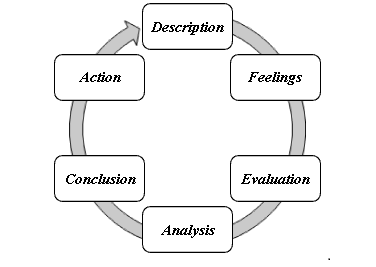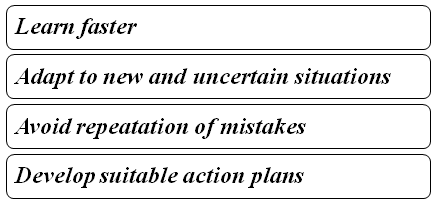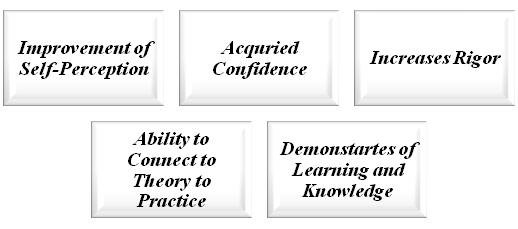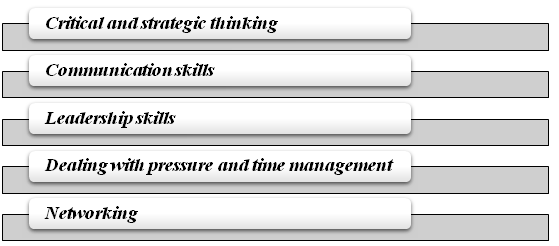Capstone Reflection Essay: Skills Developed During MBA Course
Question
Task: The purpose of this capstone reflection essay is to foster student’s ability to coherently reflect on their undertaking of the Capstone: Strategy subject together with a reflection on their entire MBA.
Answer
1. Introduction
Herein capstone reflection essay, for an intellectual and culming experience for students during their final semester or final year at an academic institution, a capstone project can be undertaken which is a multifaceted assignment. This enables the student to achieve a compact learning experience through the entire course of their study which will help them in their future professional endeavours (Girard, Yerby& Floyd, 2016). As a part of my MBA course, I had to undertake a reflective essay which discussed my overall experience of the course and the learning outcomes achieved by me through this course. The capstone strategy helped me in developing critical thinking and solving problems which is a prerequisite for every professional trying to make a mark in the business world after completing their MBA. Not only did the capstone strategy help me to develop these skills, but it also enabled me to develop teamwork, planning, public speaking, self-sufficiency and goal setting. A capstone strategy also helps a student to understand the interdisciplinary aspects of the academic course and helps in making structured decisions for problem solving during the learning experience (Hall, Wood &Splan, 2017). This reflective essay will highlight the reflective practices of managers and leaders, learning from the capstone subject and consultancy research process, skills developed over the MBA course and how these skills will assist in future career endeavours.
2. Value of Reflective Practices for Managers and Leaders
Mangers and leaders are born out of individuals after the development of cognitive skills and training through undertaking of various managerial courses such as an MBA. In order to manage within an organisation or a team with effectiveness and efficiency, a leader or manager as to adopt reflective practices which will help them to formulate innovative solutions for organisational development. The value of reflective practices in a leader or manager is that it helps them to understand and assess past events for making connections to achieve the organisational goals and objectives in a better way (Ersozlu, 2016). Through a coherent reflection an organisational leader or manager will be able to increase their analytical abilities of a situation and address the faults which can be rectified in the future. Therefore, the value of reflective practicesin leadership is that it is considered to be structured process that aims at elevating the learning insights of individuals through the past experiences and disruptive situations.
Uncertainty in the business world is a persistent phenomenon which can be overcome if the organisational leaders and managers are able to critically reflect on the actions taken by them in past situations and make structured decisions in the future in case such situations are encountered (Oeij, Gaspersz, Van Vuuren&Dhondt, 2017). According to Harry-Nana & Bosch (2020), a leader or manager of an organisation or team can follow the given steps as per the Gibbs Reflective Cycle which will facilitate them to critically reflect on their past experiences:
1. The primary stage is to describe the situation and analyse what happened and what are the underlying reasons that led to its occurrence.
2. The second stage is characterised by the analysis of the personal feelings involved of the related parties regarding the occurrence of the situation.
3. A critical evaluation is requisite for the leaders or managers that gives a detailed overview of the positive and negative aspects associated with the situation. This facilitates the individuals related to the situation to avoid committing the similar mistakes and assists leaders and managers to device a suitable action plan.
4. Upon analysing the situation, a leader or manager is able to test and validate their own actions for overcoming the situation. Analysis of the situation will also lead to the development of several assumptions pertaining to similar situations and the possible actions that should be adopted by the leaders and managers.
5. It is important for the leaders and managers to draw insightful conclusion from the entire situation which will facilitate them to understand and avoid mistakes in the near future.
6. The essence or value of such reflective practices adopted by the organisational leaders and managers facilitates them to formulate suitable action plans for the organisation or team which will enhance their functioning.

Figure 1: Gibbs Reflective Cycle
(Source: Author)
The values of reflective practices within leaders and managers can also be analysed considering the benefits of such practices. A reflective leader will be able to learn faster and adapt to new and uncertain situations more rapidly (Reardon, Fite, Boone & Sullivan, 2019). It will also help them to not repeat mistakes since reflective practices involve analysing past situations and evaluating the reasons for their occurrence. Such practices will help leaders and managers to adapt to unfamiliar circumstances through the identification of underlying connections and relations associated with it to develop suitable action plans.

Figure 2: Benefits of Reflective Practices in Leaders and Managers
(Source: Author)
3. Personal Reflection on Learning from the Capstone Subject and Consultancy Research Process I had the opportunity to experience the benefits of the capstone subject and consultancy research project while doing my MBA course. As part of the MBA course, we needed to write an assignment which is a reflective essay of the capstone strategy and the learning outcomes we achieved through it. Throughout this course, I understood with clarity the importance of the capstone subject and what abilities I have gained through it. Though a capstone is a daunting task for a student which requires extensive diligence and persistence, it also helps a student in elevatingself-perception and individual confidence through the accomplishments during the course of study. I have also gained a helpful insight regarding my potential and dedication which will be further helpful for me in the practical world. Through the capstone subject, the individual rigor of the student also increases in the final year which channelizes the focus students towards completion of a final year project(Mowbray, 2015). Since I had to write a consultancy research during the course of my MBA it also helped me to understand the practical business world and it functionality.
The consultancy research project facilitated the application of analytical skills and diligence for its completion that helped me understand the importance of a capstone subject. The consultancy project has enriched my understanding of the professional business world that will help me develop my career in the future. A capstone subject in the MBA course will be a guiding experience for me for culminating the skills for focused learning during the final semester of a course and completion of final assignments. It has been analysed that a capstone project in the form of a consultancy research will enabled a student to build a resume for the professional world which will be a proof of their learning experience acquired throughout the academic course (Martonosi& Williams, 2016). A capstone in the resume of an individual is an evidence of the skill set possessed by that individual such as the motivation level, degree of diligence, ability to plan and application skills of knowledge gained in the practical world (Konrad, Hall-Phillips & Vila-Parrish, 2018). A consultancy research which was my capstone has helped me to build my ability to apply the theoretical knowledge acquired during the MBA course in the practical field. Through my capstone project I will be able to demonstrate the learning acquired in the MBA course and apply that knowledge in solving organisational problems, make structured decisions and have an analytical viewpoint while working in a team. It is necessary that the theoretical learning in an academic course be applied in devising practical solutions in the real business world (Keup, 2015). Moreover, if an individual is an organisational or team leader, it will be necessary for them to develop their cognitive skills and critical thinking ability for achieving the stipulated objectives and goals. Through the capstone strategy , I was able to understand the importance of the academic course undertaken and will be able to apply it in future career endeavours.

Figure 3: Benefits of Capstone Strategy
(Source: Author)
4. Personal Reflection on Skills Developed over the MBA Course
MBA is a post graduate degree where I mainly assumed that it involves in developing good communication skills and leadership skills, but after joining the course I realized that it involves case studies and project which needs to be worked on and how we achieve through such projects a real time practice. This course really helped me understand my own skills that I developed over each semester and also helped me determine my area of interest. Few of the skills which I developed are listed as below: -
- Critical and strategic thinking: as an MBA student it was necessary to think always out of the box for new ventures and develop a new angle on existing practices in order to stand out and make my views and ideas stand out (Choudary&Ponnuru,2015). It helped me to understand various situations that may arise and identify the issues and think strategically before taking the necessary actions. Thus, this course helped me to get a foresight to issues which might take place and also helped to understand the necessary actions that needs to be taken.
- Communication skills: good communication skills are always necessary in handling business endeavors (Silbiger, 2016). As companies and many delegations comes in from all across the world so good communication skills are needed to convey one’s ideas and decisions to all the people present. As a manager it is absolutely necessary to explain your subordinates and at the end of the day it will help boost the company’s morale and help in achieving the productivity at work.
- Leadership skills: in an MBA degree it is very important to have leadership qualities in order to lead the team into productivity of work (Beenen, Pichler&Davoudpour, 2018). As a manager it is important to motivate the subordinates and the team as a whole to achieve team growth and productivity (Hougaard, Carter& Afton, 2018). It also helped me to adapt better and to have trust in my co-worker also. Being a leader of the team helped me to understand what problems might arise and as a group how to solve them.
- Dealing with pressure and time management: being in an MBA student it was very important to take decisions relying on my understanding and knowledge. Even in our curriculum we were taught how to take correct decisions depending on various issues. Few of the projects that we were given, tested our decision-making skills and the presence of mind at that particular scenario. As we had many projects to work on it was also very necessary to learn to cope with the high-pressure situation and working towards meeting our deadlines on time.
- Networking: one of the main skills that I would like to say I learnt during the course of time is networking. In our student life we were given a number of opportunities to attend various events and from our own groups and grow our networks. Networking skills acts as an asset in the business environment, and I am grateful to the course curriculum for helping me gain the ability to connect with various people.

Figure 4: Skills Developed over MBA
(Source: Author)
5. Personal Reflection on how these will assist in Future Career Endeavours
MBA course helps young people like me to cope and thrive in the business world of today. The course helped me to develop my necessary skills to keep a company successful and also to become a successful leader. The study program helped me to develop my communication and my marketing skills. It also helped me to learn how to overcome difficult situations and manage them, be it a financial crisis or any public scandal. Even minor arguments and disagreements at workplace can hamper the productivity of the work at hand (Prince, Burns,Lu& Winsor, 2015). Thus, it is very important to understand how to resolve these issues quickly and not let the team spirit go which could hamper the work productivity. Networking is an important aspect of the business world which is very essential as it would help in future endeavors as and when required. This was a skill that I completely built up during the course as I was very poor in socializing and networking with different kinds of people.
Creating connections from different fields of work is very essential in business as it helps in creating future partnerships which would in turn help the company itself (Verzuh, 2015). Being the manager also needs to maintain the company’s positive image, to help motivate the team members and to always be active to help and coordinate the work. Companies usually prefer to hire young minds who have good decision-making capabilities and who can make strategic decisions at the needed time. These are few skills which I learnt during my internships when I had to take few decisions and also assist my team members in the work which we were assigned.
Better communication does not always mean being able to converse transparently with the team members, but it also includes the listening of the problems at hand part (Buenviaje et al., 2016). So, this was one important aspect that I learned during my internship to listen to the problems clearly and then take the desired decision. Another important skill that I learnt during my course is of time management. Time management is an art as I felt it and it is very important in today’s world. It helped in understanding my own capabilities, to the extent I could work and also made me efficient during my work hours. Managing or doing multiple tasks at the same time helped me handling various projects at the same, meeting the targets set and also helped in the challenges that the world can throw at me. Earning this MBA degree will help me grow and reenergize my career path. Improve myself not only in my job position but also as the capable leader which would also expand the potential job opportunities in which I can qualify. As an MBA student I am better at assessing risks, understanding the fluctuations related with work and respond effectively to economic changes and market fluctuations. Thus, I think that this MBA degree has proved to be very useful in my career and will unfold many new paths as I climb the ladder. It has also helped me to learn few very essential skills which would help me as an individual and also as an employee.
6. Conclusions
It has been inferred by me that there is widespread importance of a capstone strategy in an academic course for the development of practical skills in an individual through theoretical learning. The skills that I developed over my MBA course will help me in my future career endeavours in the professional world. I also believe that such skills will make me a better leader and manager in an organisation where I aspire to work and capstone strategy is definitely a milestone achievement in my academic career which will also help me grow in my professional career.
7. References
Beenen, G., Pichler, S., &Davoudpour, S. (2018). Interpersonal skills in MBA admissions: How are they conceptualized and assessed.Journal of Management Education, 42(1), 34-54.
Buenviaje, M. G., Encio, H. A., Refozar, R. F., Anuran, A., Camello, N. C., &Laguador, J. M. (2016).Employability andSkills of MBA Graduates fromLiterature Review asInput to Student Development Program.Journal of Research in Business and Management Volume, 4(5), 16-21.
Choudary, D. V., &Ponnuru, M. (2015). The Importance Of Soft-Skills Training For Mba Students And Managers. Abhinav International Monthly Refereed Journal of Research in, 4(11), 6-14.
Ersozlu, A. (2016). School Principals' Reflective Leadership Skills through the Eyes of Science and Mathematics Teachers. International Journal of Environmental and Science Education, 11(5), 801-808.
Girard, J. P., Yerby, J., & Floyd, K. (2016). Knowledge retention in capstone experiences: An analysis of online and face-to-face courses. Knowledge Management & E-Learning: An International Journal, 8(4), 528-539.
Hall, M. R., Wood, C. M., &Splan, R. K. (2017). Was it worth it Student perceptions of value for a required capstone experience in the animal sciences. NACTA Journal, 61(3), 241-247.
Harry-Nana, P., & Bosch, A. (2020).A framework to enhance the design of reflective leadership development learning interventions. South African Journal of Higher Education, 34(4), 60-76.
Hougaard, R., Carter, J., & Afton, M. (2018).Self awareness can help leaders more than an MBA can. Harvard Business Review, 12.
Keup, J. R. (2015). National research and trends on senior capstone experiences. Presentation given to Academic Development Centre, University of Johannesburg, South Africa.
Konrad, R., Hall-Phillips, A., & Vila-Parrish, A. R. (2018). Are our students prepared? The impact of capstone design pedagogical approaches on student skill development during industry-sponsored fieldwork. INFORMS Transactions on Education, 18(3), 183-193.
Martonosi, S. E., & Williams, T. D. (2016).A survey of statistical capstone projects. Journal of Statistics Education, 24(3), 127-135.
Mowbray, J. (2015). The Postgraduate Capstone Experience: Negotiating the Pedagogical Tensions. Journal of Learning Design, 8(2), 43-52.
Oeij, P. R., Gaspersz, J. B., Van Vuuren, T., &Dhondt, S. (2017). Leadership in innovation projects: an illustration of the reflective practitioner and the relation to organizational learning.Capstone reflection essay Journal of Innovation and Entrepreneurship, 6(1), 1-20.
Prince, M., Burns, D., Lu, X., & Winsor, R. (2015). Knowledge and skills transfer between MBA and workplace. Journal of workplace learning.
Reardon, R., Fite, K., Boone, M., & Sullivan, S. (2019). Critically Reflective Leadership: Defining Successful Growth. International Journal of the Whole Child, 4(1), 20-32.
Silbiger, S. (2016).The 10-day MBA: a step-by-step guide to mastering the skills taught in top business schools. Hachette UK.
Verzuh, E. (2015). The fast forward MBA in project management.John Wiley & Sons.












